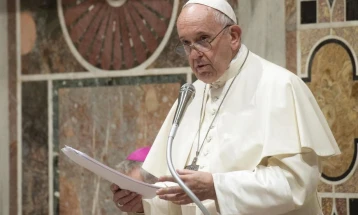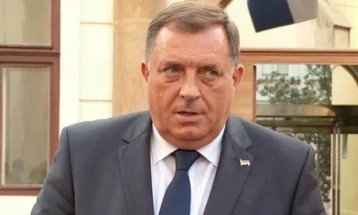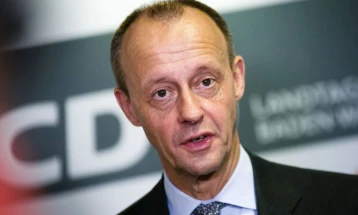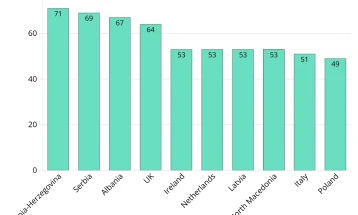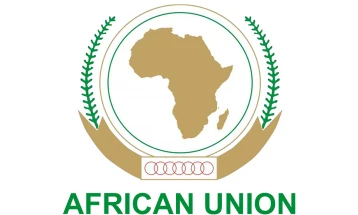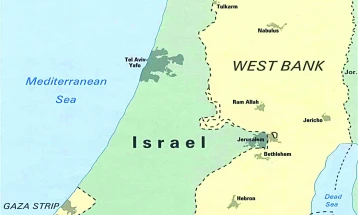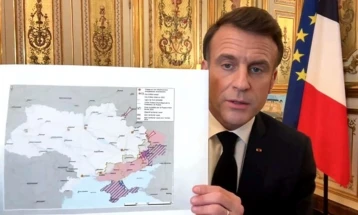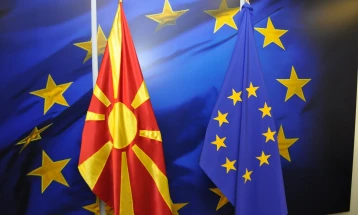Pressure mounts on EU leaders to break deadlock on defence
- European Union leaders gathered on Monday in Brussels were under increasing pressure to break the deadlock and agree on how to significantly bolster defence capabilities despite gloomy economic outlooks.
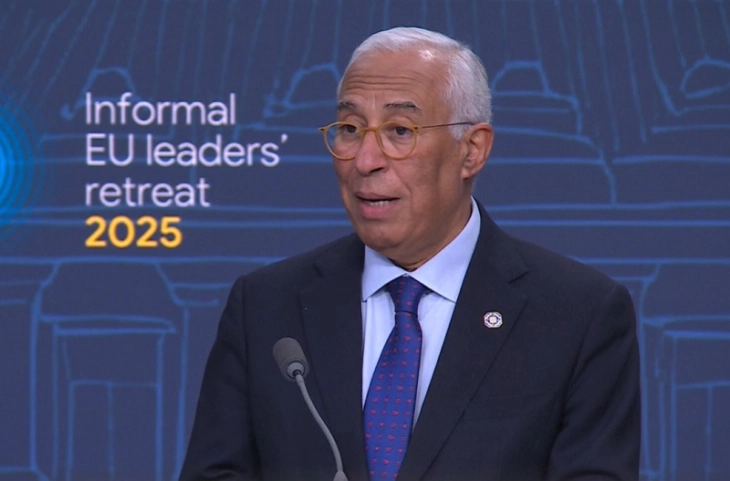
Brussels, 4 February 2025 (dpa/MIA) - European Union leaders gathered on Monday in Brussels were under increasing pressure to break the deadlock and agree on how to significantly bolster defence capabilities despite gloomy economic outlooks.
One of the main issues was how to finance the necessary multibillion-euro investments. After several crises, many European countries are short on money and faced with faltering economies.
Around €500 billion ($513 billion) would be required over the next 10 years for projects to enhance Europe's air-defence system and secure the bloc's Eastern land borders, according to the European Commission.
Possible solutions, such as joint borrowing at European level or the softening of the EU deficit limit, have failed so far to receive sufficient support also due to resistance from Berlin.
A compromise could be to finance more defence projects via the European Investment Bank (EIB).
German Chancellor Olaf Scholz said EU countries needed "more flexibility to finance the massive expansion of our defence investments through loans" but stressed that joint borrowing would not be an option.
The European Commission will assess and use all possibilities under EU deficit rules "to allow for a significant increase in defence spending," said European Commission President Ursula von der Leyen.
She also called on the private banking sector to show greater willingness to finance defence projects.
"I think we really have to speak to each other," von der Leyen said.
European Council President Antonio Costa said that it was clear to everyone that the EU needed to swiftly agree on a way forward. However no decisions are expected before June.
The EU has struggled to ramp up arms production in recent years, despite Russia's war against Ukraine adding urgency to the effort and military assistance for Kiev depleting domestic stocks.
The return of US President Donald Trump is adding pressure amid concerns over his interest in gaining control of Greenland, possibly fewer US soldiers in Europe and less support for Ukraine.
Berlin also aims for new rules for the joint development and procurement of defence equipment in the EU to efficiently bolster defence capabilities.
EU countries must also see how to get specific technical developments off the ground and how to produce large quantities of affordable weapons, Scholz added.
French President Emmanuel Macron said he was in favour of giving the EIB a bigger role in financing defence projects and stressed the importance of buying European-made arms.
Leaders were joined for talks about defence cooperation by NATO Secretary General Mark Rutte and British Prime Minister Keir Starmer - the first time a British prime minister attended an EU summit since the UK left the bloc five years ago.
Rejoining the EU was out of question but "I do think that we can have a better, closer relationship when it comes to trade and security," Starmer said.
A security partnership between UK and the EU would improve the mobility of forces, contribute to the protection of critical infrastructure, deepen industrial collaboration and increase defence production, he said.
"But also, I will touch on the wider reset, which goes beyond defence and security into the fields of energy and into trade and the economy."
European Union foreign policy chief Kaja Kallas called for closer ties with the United Kingdom, stressing cooperation on defence as the next logical step in relations with the former EU member.
Some EU members see cooperation with the UK on defence however as problematic, with France in particular putting a brake on negotiations.
Photo: screenshot
